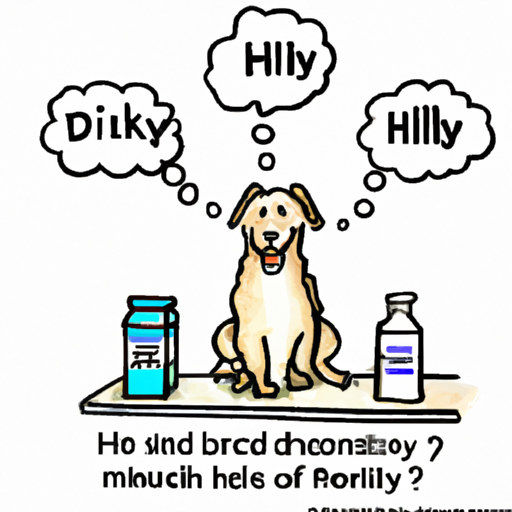Understanding Your Dog’s Digestive System
First things first, let’s delve into the basics. You see, your dog’s digestive system isn’t quite like ours. While we can process a variety of foods, our canine companions aren’t as versatile. They thrive on a diet rich in proteins and fats, often struggling to process other types of food.
Lactose, the primary sugar found in milk, requires a specific enzyme to break down, an enzyme many dogs lack in sufficient quantities. This deficiency can lead to digestive discomfort, including bloating, diarrhea, and gas.
The Issue With Regular Cow’s Milk
You may be wondering, “If my dog likes to lap up the milk left in my cereal bowl, is it really a problem?” The answer lies in the lactose content. Cow’s milk is high in lactose, which can be difficult for dogs to digest, particularly in large quantities. Feeding your dog cow’s milk can lead to:
- Digestive upset
- Allergic reactions
- Obesity due to high fat and sugar content
Dog-Safe Milk Alternatives
Fortunately, there are several dog-safe milk alternatives available that can provide the creamy taste your dog loves without the digestive discomfort. These include:
-
Goat’s Milk: This is easier on your dog’s digestive system due to the lower lactose content. It also provides beneficial probiotics and enzymes.
-
Lactose-Free Cow’s Milk: This is regular cow’s milk with the lactose removed. It provides the same taste without the digestive problems.
-
Plant-Based Milks: These include almond milk, coconut milk, and oat milk. Ensure they are unsweetened and free from additives like xylitol, which can be toxic to dogs.
| Milk Type | Lactose Content | Dog-Safe |
|---|---|---|
| Regular Cow’s Milk | High | No |
| Goat’s Milk | Low | Yes |
| Lactose-Free Milk | None | Yes |
| Plant-Based Milks | Varies | Yes* |
*Ensure they are unsweetened and free from dangerous additives
The Role of Milk in Your Dog’s Diet
It’s important to note that while these alternatives are safe for dogs, they should not replace a balanced diet. Milk should be viewed as a treat, not a dietary staple. Dogs require a diet rich in animal proteins, healthy fats, and a small amount of fruits and vegetables.
FAQ
Q: Can I give my puppy milk?
A: Puppies are generally able to digest their mother’s milk because they produce the necessary enzymes. However, they may struggle with cow’s milk and alternatives should be considered.
Q: How much milk can I give my dog?
A: Milk should be offered in moderation. Start with a small amount and monitor your dog for any adverse reactions.
Q: Can milk treat dehydration in dogs?
A: While milk can provide hydration, water is always the best option for a dehydrated dog. If your dog is showing signs of dehydration, seek veterinary attention immediately.
Remember, as a caregiver, it’s important to understand what’s best for your furry friend. Always consult with your vet before introducing new foods into your dog’s diet.



